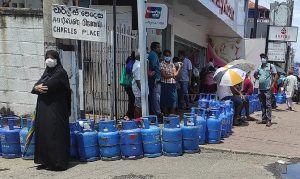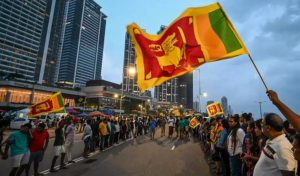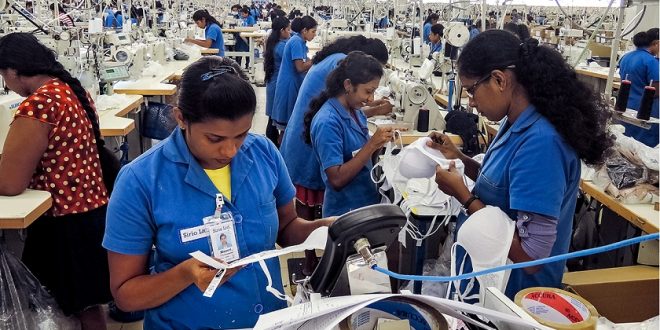07-06-2022
COLOMBO: There have been days when cybersecurity professional Asela Waidyalankara and his colleagues have sat in hotel lobbies to complete projects during power outages. Other days, they have run around Colombo looking for fuel for generators so they could work from home.
 “We have a buddy system at the company to inform each other about fuel availability,” laughs Waidyalankara, adding that his company encourages staff to carpool if they have to attend meetings in Colombo and work from home when possible.
“We have a buddy system at the company to inform each other about fuel availability,” laughs Waidyalankara, adding that his company encourages staff to carpool if they have to attend meetings in Colombo and work from home when possible.
Before the pandemic, Sri Lanka’s IT industry employed more than 120,000 people and was the fifth-largest export earner for the island nation of 22 million. It was on track to become the top exporter within the next five years and double its employees. But with the government of President Gotabaya Rajapaksa having defaulted on its foreign debt earlier this year and critical shortages crippling the economy, those plans are now in jeopardy as it becomes harder to maintain normal business operations.
Daily, hours-long power cuts are now normal. Fuel queues stretch for kilometres, sometimes so far that one fuel queue meets another. The country is running on a cash flow basis. “We are using whatever dollars that flow in to purchase the essentials we can,” Nandalal Weerasinghe, governor of the Central Bank of Sri Lanka (CBSL), said last month.
On May 19, the CBSL said it expects the economy to “record a setback” even as the cost of living  continues to shoot up, May inflation was 39.1 percent, and fuel prices have more than doubled since the start of the year.
continues to shoot up, May inflation was 39.1 percent, and fuel prices have more than doubled since the start of the year.
Steady power and smooth internet, essential for the IT industry to function effectively, are constantly affected. “We have weekly and monthly deliverables and we struggle to meet them sometimes,” Waidyalankara told media. “Our service levels are also affected, for example, we have to reply to a cybersecurity incident within two hours, but with power cuts and slow internet it is a challenge to meet these expectations,” he said.
Sri Lanka has several regional competitors in the IT sector, including India, Bangladesh and Vietnam. “We have spent years cultivating relationships with clients, so they are understanding, but there is always a fear that our business will be taken away and given to competitors if we cannot maintain our delivery and quality,” says Waidyalankara.
The ongoing economic crisis and the lack of a cohesive plan by the incumbent government to  resolve it are starting to affect the confidence of foreign investors.
resolve it are starting to affect the confidence of foreign investors.
Sanjiva Weerawarana, founder and chief executive of WSO2, a Sri Lankan software company which raised $90m from Goldman Sachs in November, told Al Jazeera that his company has had to look for creative ways to hedge the country’s risk to appease investors. While WSO2 has offices in several countries, including the United States, the United Kingdom, Dubai and India, the company will “likely expand” its presence outside Sri Lanka to boost investor confidence and ensure business continuity, Weerawarana said.
Brain drain
The past few years in Sri Lanka have been troublesome. An unconstitutional 52-day government in October 2018 shook investor confidence and was followed a few months later by deadly bomb blasts on Easter Sunday in April 2019. And while migration, especially among highly skilled workers like software engineers, doctors and nurses is not uncommon, the economic conditions of the past year, on top of the turmoil before that, have increased the pace at which Sri Lankans seek greener pastures. (Int’l Monitoring Desk)
 Pressmediaofindia
Pressmediaofindia




